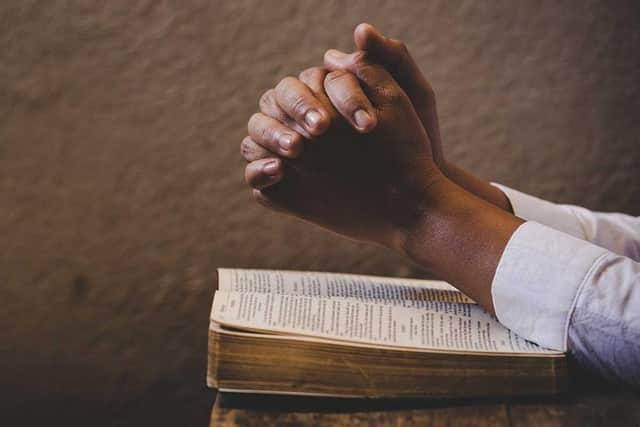How does faith lead us to respond to catastrophe? | Faith Matters
and live on Freeview channel 276
How do you begin to describe the humanitarian catastrophe that is unfolding in Gaza? Even the names can be contentious.
Gaza is an ancient, poor and densely populated, predominantly Muslim, Palestinian city. Israel is an independent nation with its own government and historic claims upon Jerusalem as the Holy City for the Jewish people. Hamas is the Islamic Resistance Movement.
Advertisement
Hide AdAdvertisement
Hide AdInternational response understandably focuses on the conflict, the death toll, the allocation of blame and responsibility, the immediate and urgent need for defence, safety and peace.


Meanwhile, the media presents the reality of violence that dehumanises perpetrator and victim alike, inflicting physical, mental and spiritual trauma on survivors, young and old, from which they will never recover.
What are we, who observe this, to do?
First, we have a duty to continue to observe, to be informed, appalled and shocked. We generally recoil from horror and look away, understandably seeking protection from the damaging influence of evil violence.
But social media reminds us of the reality of global connectedness. Like the spread of a virus, the evil of conflict, in any part of the world, contaminates all of us.
Advertisement
Hide AdAdvertisement
Hide AdLast Friday, Pope Francis called on believers and non-believers to join him in a day of fasting and prayer for world peace.
For believers, prayer is the expression of faith in God, who inspires us to seek the truth and justice that lead to reconciliation and to the gift of peace, the legacy of Jesus Christ, the Son of God.
Fasting is a response to human crisis that all people can undertake. The denial of our most immediate satisfaction in food and drink confronts us intimately. It sharpens the mind and deepens our attention to what is being denied to others: the freedom and peace of mind and body.
Fasting is a hidden act of solidarity with the suffering of those who share our common home, the earth. It costs nothing. But it enriches us in compassion and understanding.
Dates for your diary
Advertisement
Hide AdAdvertisement
Hide Ad- Talk on Pugin stained glass in a landmark Brighton church – St Paul’s Church, West Street, Brighton, BN1 2RE, Saturday, November 4, 7pm.
Join renowned historian David Beevers to explore the impressive stained glass of a church in the heart of Brighton in all their glory. Doors open from 6.30pm on the night, with drinks and nibbles served. Tickets cost only £10 per person and can be bought on the door or in advance from Mark Gourley at [email protected]
- Cathedral Theology Network Online Courses: The Crusades, given by Charlotte Gauthier.
Running at 7pm on Zoom on 14 November, 21 November, 28 November, 5 December, these talks promise to the history, theology, and social impact of the crusades from the Middle Ages to the present day. The speaker, Charlotte Gauthier, is a doctoral researcher in History at Royal Holloway, University of London. For more information and to register internet, visit www.cathedraltheology.org/crusades
- American Thanksgiving service – Chichester Cathedral, Thursday, November 23, 5.30pm.
Introduced at the request of the Chichester Cathedral American Patrons, the cathedral is keen to share all it has learnt about its transatlantic links. There will be an opportunity to meet with the American visitors for drinks after the service. For more information, do visit www.chichester.anglican.org/events/2023/11/23/american-thanksgiving-service